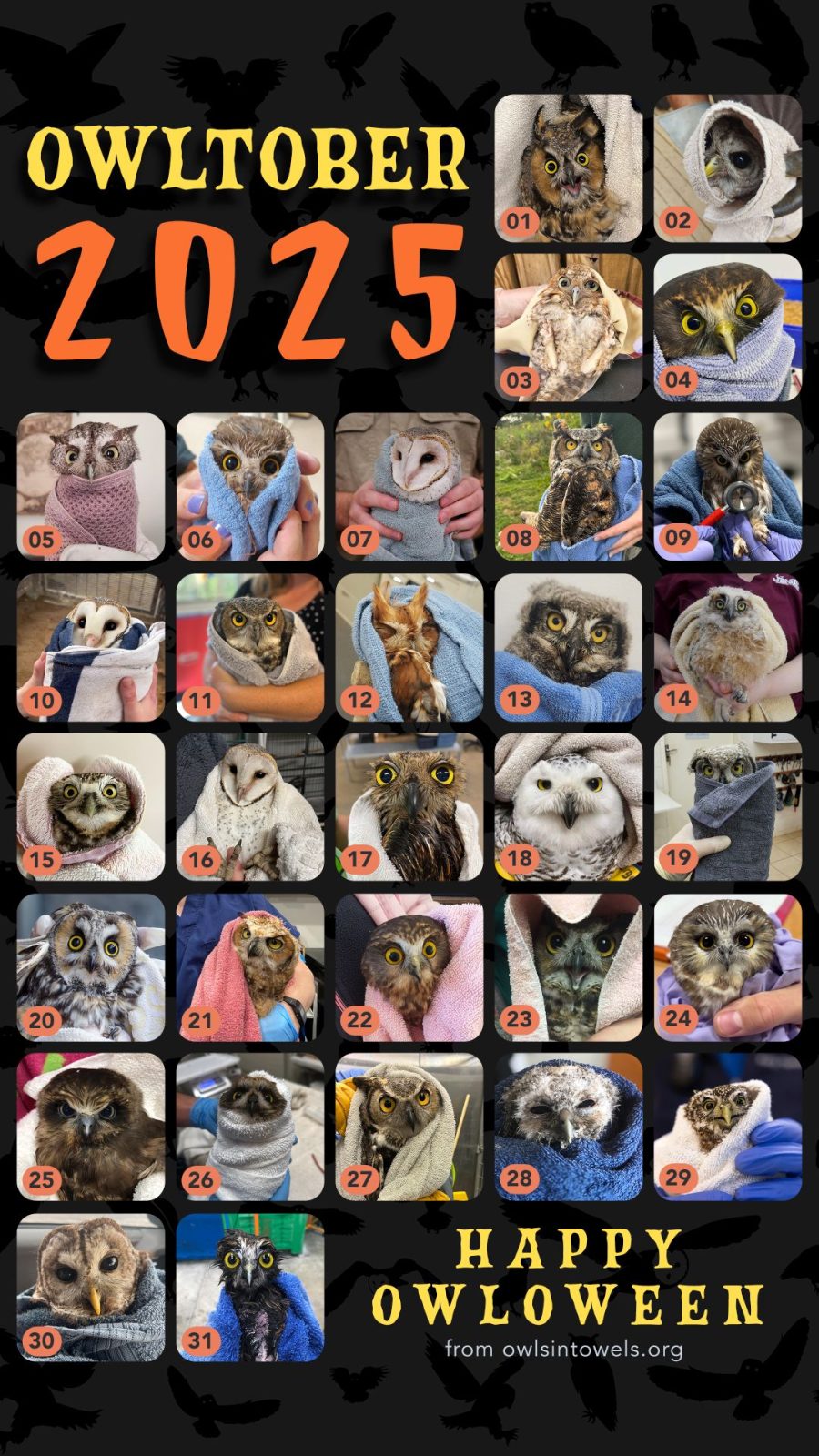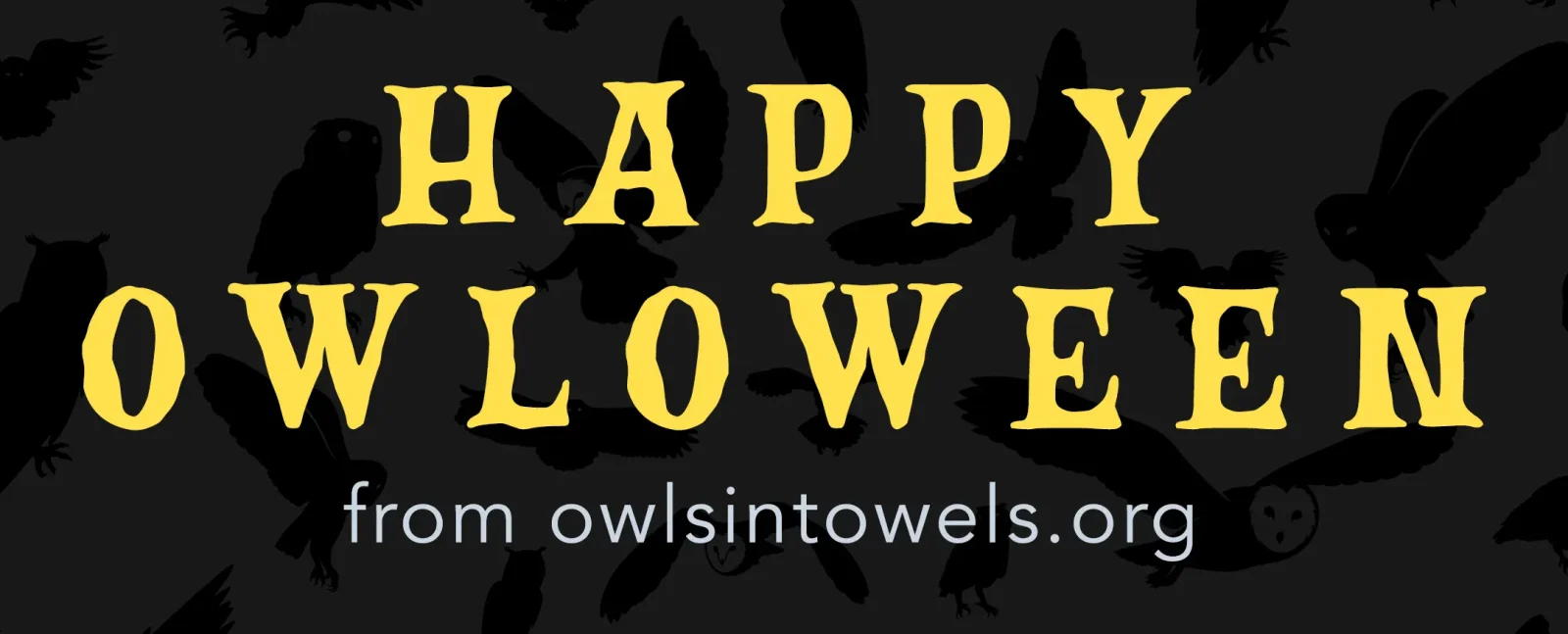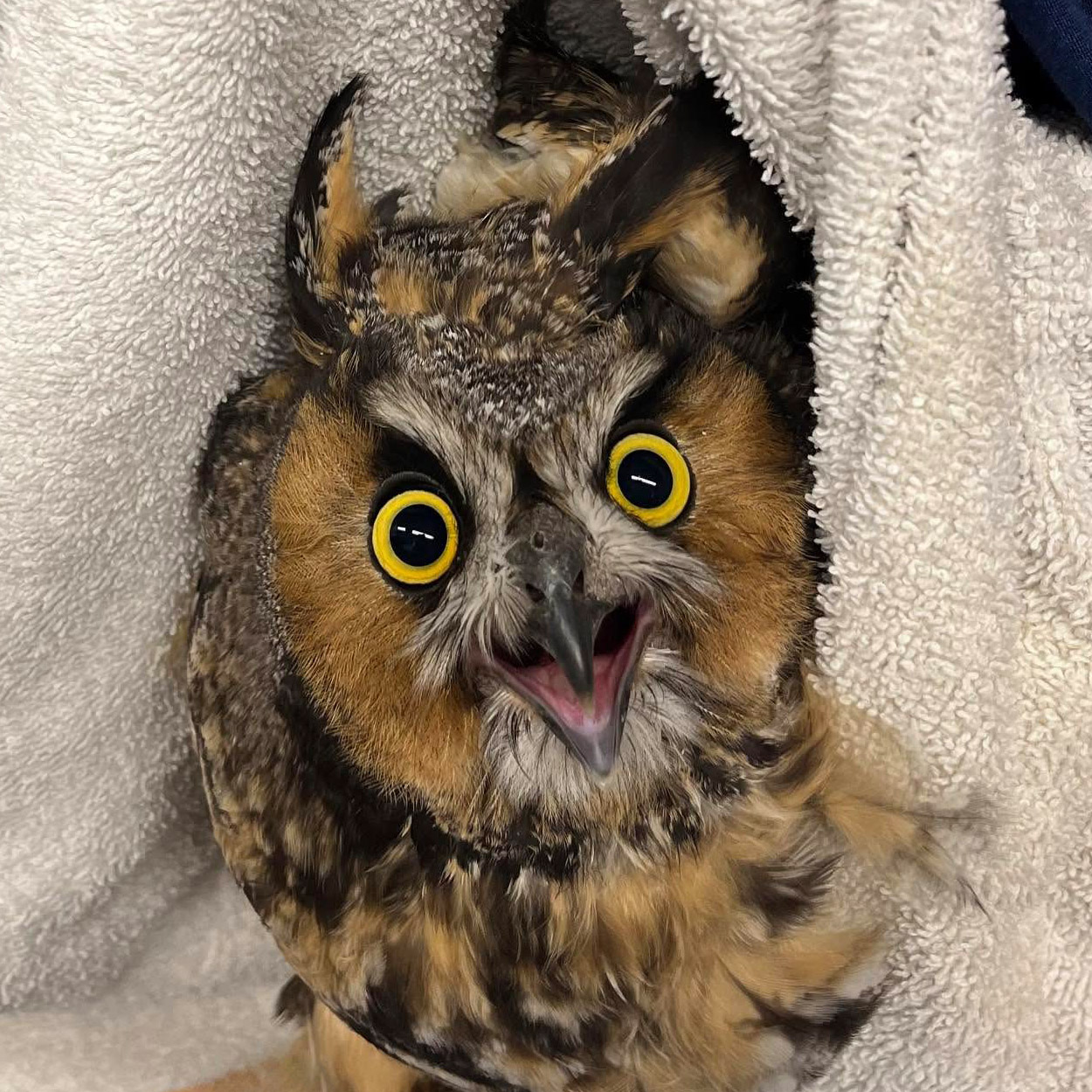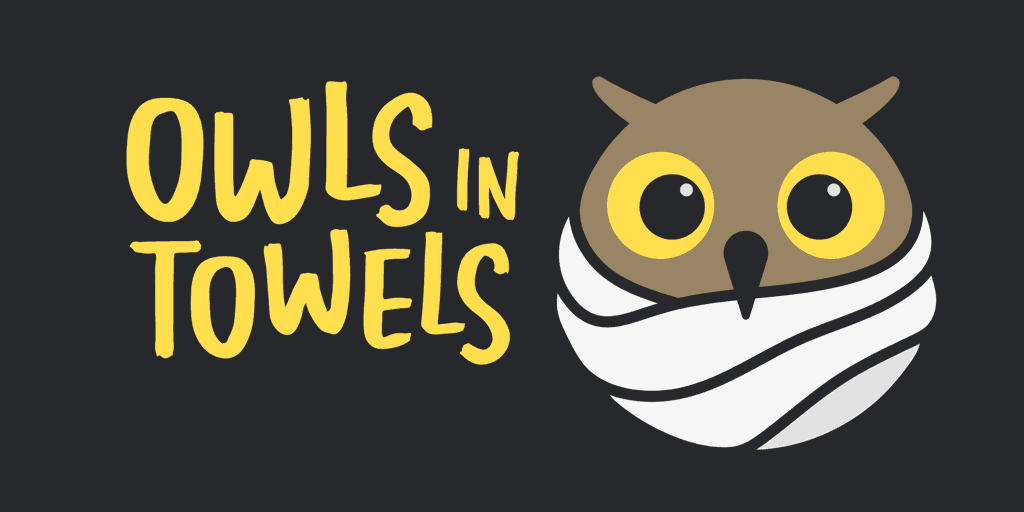It’s a SPOOKY time of year,
and these little flying monsters know owl about it.

But you wanna know what’s REALLY SCARY?
Almost all the owls featured on this site are admitted for injuries caused by . . .
HUMANS
😱
Yup. Most owl injuries seen at wildlife clinics are due to HUMAN impacts. And most are entirely preventable!
Here’s a bunch of ways we negatively affect owls (and other wild animals):
☠️ Rat poison
🫙 Glue traps
✨ Barbed wire fences
🎣 Fishing lines
🥅 Soccer nets
🕸️ Artificial decorations
🪟 Window strikes
🚗 Car strikes
🚯 Road Litter
🪓 Habitat loss
It’s a lot of BAD.
But does that necessarily mean that Humans + Owls = BAD?
Nope!
And that’s because…
WE CAN DO THINGS ABOUT IT
Humans can also improve the lives of owls, often in very simple ways. And that involves you. Yes YOU!
The best way you can have an impact is by supporting your nearest wildlife rehabilitation clinic. You can donate, do voluntary work, or maybe share a social media post. EZ!
Another big way to help is PREVENTION, which means stopping wildlife injuries before they happen. Here’s a bunch of ways to prevent injury to owls, in three broad categories:
(tap to expand)
Better Pest Control
☠️ Stop the Use of Anticoagulant Rodenticides
Rat poison kills more than just rats. Owls and other predators suffer secondary poisoning when they eat rats and mice that have ingested these poisons. The results can be fatal.
🫙 Stop the Use of Glue Traps
These traps are indiscriminate and inhumane, causing slow and needless suffering to animals. They pose a danger to unintended victims, including owls.
🪤 Use Owl-Friendly Rodent Traps
Opt for more effective, humane pest control methods such as snap traps, electric traps, or non-lethal traps (live cages with an alert system). Whatever you choose, be intentional, follow instructions, and target only the specific pest area.
🦭 Seal Your Home
Prevent rodents getting in your home in the first place. Et voilà! No more traps needed. Plug all the holes and gaps in your building, keep food secure and remove items that attract rodents. Be especially vigilant in the autumn (or “fall” for you freedom folks) when the little devils are seeking a warm place to rest up for the winter. More tips – 12 Ways to Keep Your Home Free of Rodents.
🪹 Install Roosting Boxes
Encourage owls on your property, and they become the rodent control!
Fewer Entanglements
✨ Remove Barbed Wire
If you or someone you know has barbed-wire fences, educate them about the threats they pose to wildlife and suggest safer alternatives.
the sparkle emoji is the closest thing I could find to represent ‘pointy things’ OK? get off my case geez
🎣 Remove Fishing Line
Dispose of fishing gear responsibly. Lines and hooks can ensnare wildlife, causing severe injury. If you see discarded gear, remove it.
🥅 Remove Soccer Nets
Use nets for live play only. Detach nets from goal frames after each game to prevent owls getting caught.
🕸 Avoid Artificial Decorations
Steer clear of decorations like artificial spiderwebs, which can easily tangle birds and other animals.
Safer Built Environment
🪟 Prevent Window Collisions
Birds often strike windows when they see a reflection of their environment (trees, sky, clouds) and fly into the solid pane. The result is BILLIONS of bird deaths each year. No joke. The solution is to use stickers on windows to help break the illusion. Search online for anti-bird strike decals. Some even come with extra UV reflectivity. Ensure even spacing, no more than the width of your hand apart.
🚗 Drive Cautiously
Drive slowly and extra carefully during low-light times (dawn and dusk) since this is when most owls hunt, making them more vulnerable to being struck.
🚮 Keep Roads Clean
Do NOT litter on roads. Rubbish attracts rodents, which in turn attracts owls to hunt them, increasing their risk of being hit by a vehicle.
🌱 Support Owl Habitats
Get involved in saving owl habitats from destruction, enhancing existing forests, or helping generate new ones. Talk to people in your community about regeneration initiatives. You can participate by looking up volunteer planting or weeding days in the spring and summer.
Finally, you can have a big impact on wildlife simply by:
Sharing this knowledge!
And that’s it! Those are some of the things we can do about it.
Pretty simple right?
P.S. here’s a bunch more ways to help.
💛💛💛
That’s owl folks.
Take care, and have a…


image courtesy of
Think Wild Central Oregon
